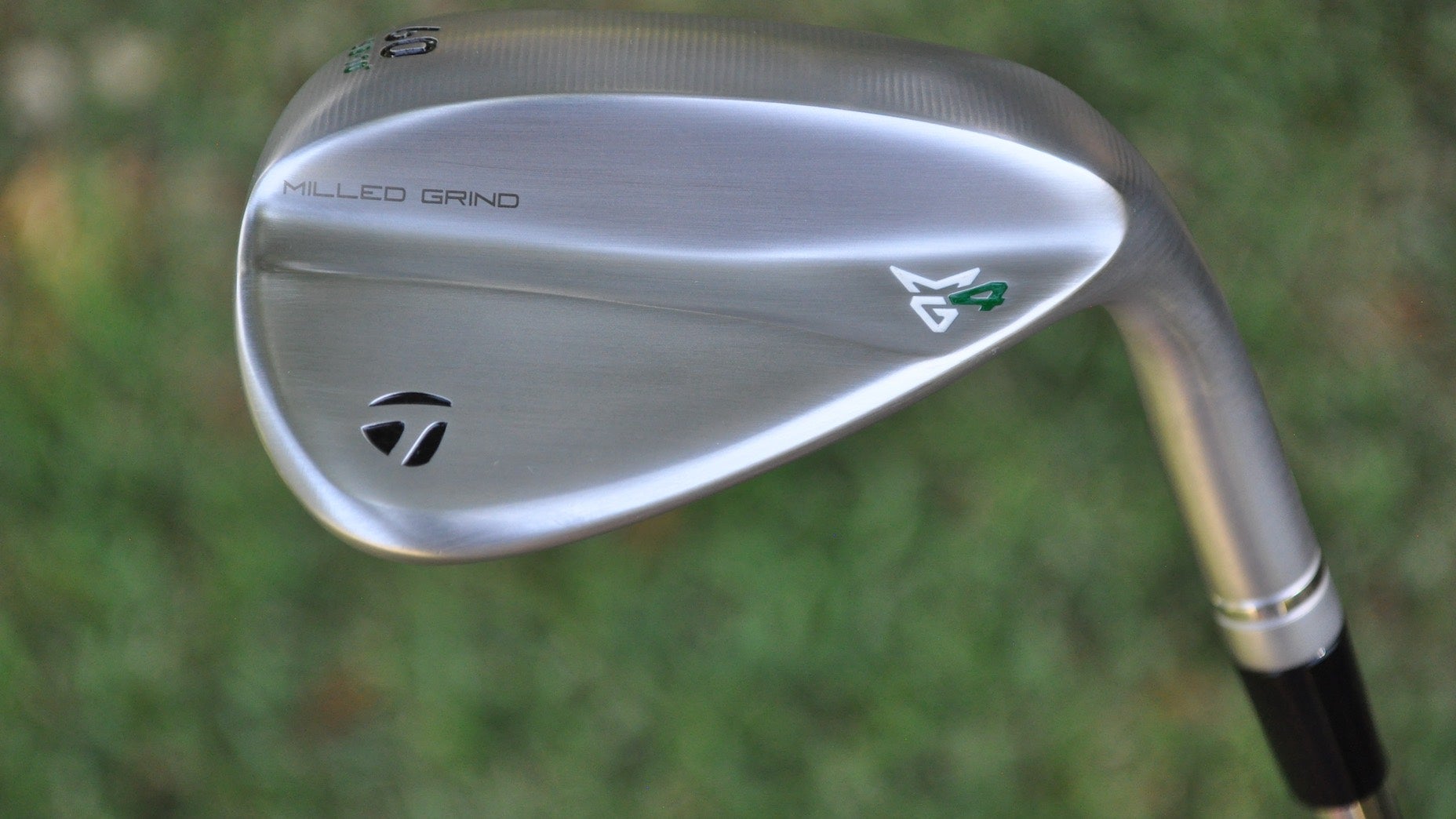
TaylorMade’s MG4 wedge features a slightly darker tint that’s designed to minimize glare
Jonathan Wall/GOLF
Realizing not everyone has the time to consume every piece of content on club launch days, we’re trying something different and offering a fresh version of our detailed tech write-ups that hits the high points. Here’s what you need to know about TaylorMade’s MG4 wedges.
It’s all about the feel
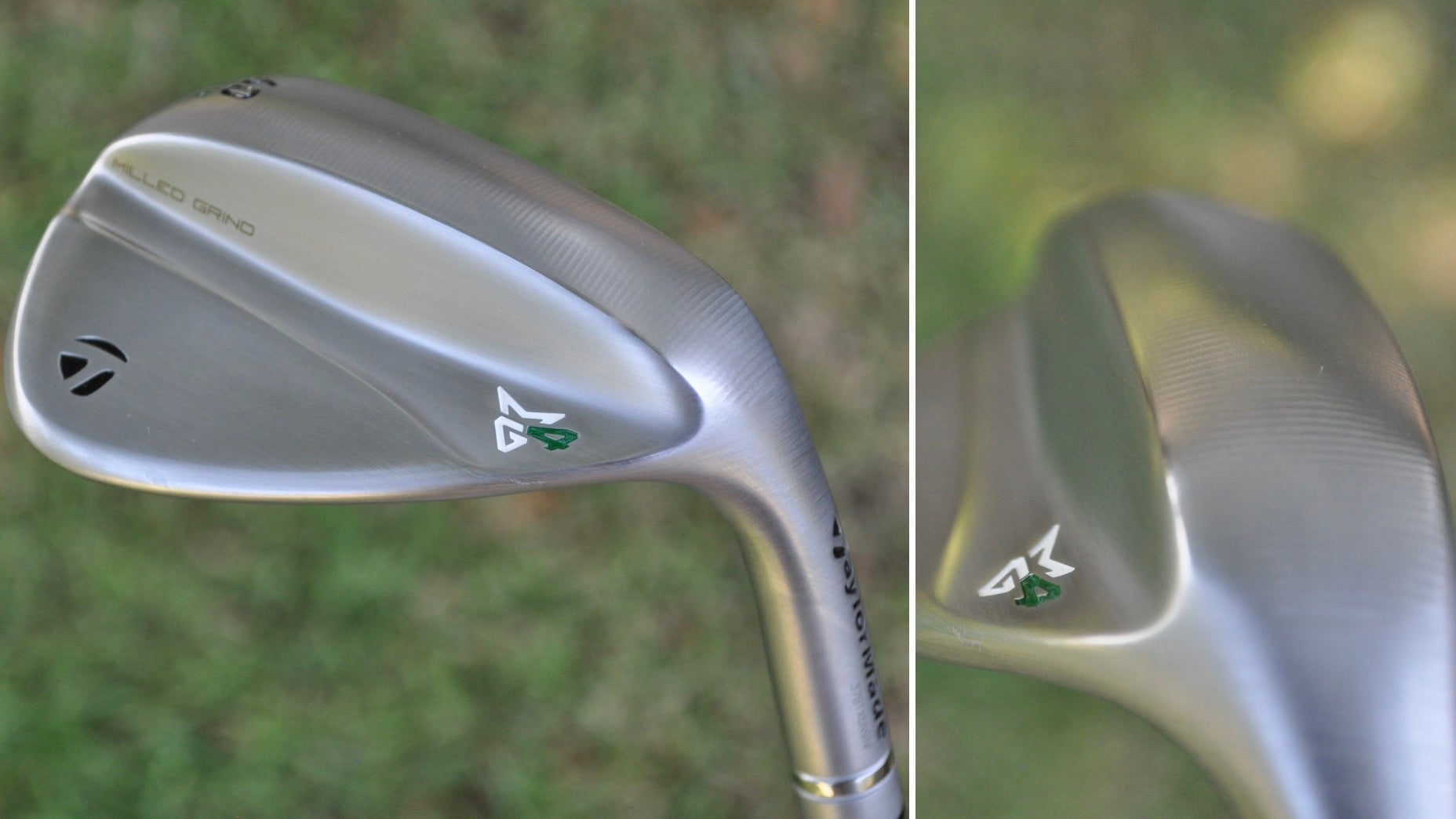
Jonathan Wall/GOLF
Feel remains one of those club attributes that’s difficult to quantify. What might feel “soft” to one golfer is “firm” for another. But let’s be clear: There’s no questioning where MG4 falls on the feel spectrum — it’s designed to be soft. And with a solid-construction wedge, the only way to change feel is to alter what’s behind the ball.
“We realized in MG3 we were getting some slight vibrations on off-center hits,” said Greg Cesario from TaylorMade’s wedge design team. “What we did was increase the mass pad to improve the overall feel.”
On MG4, the mass pad on the back side of the head was extended higher and made wider on the sole — about 1 millimeter — to give feel a bump. Cesario noted the center of gravity (CG) moved slightly lower as well with the geometry enhancement, but it wasn’t enough to alter the higher CG that helps produce a lower launch and more control.
Spin tread
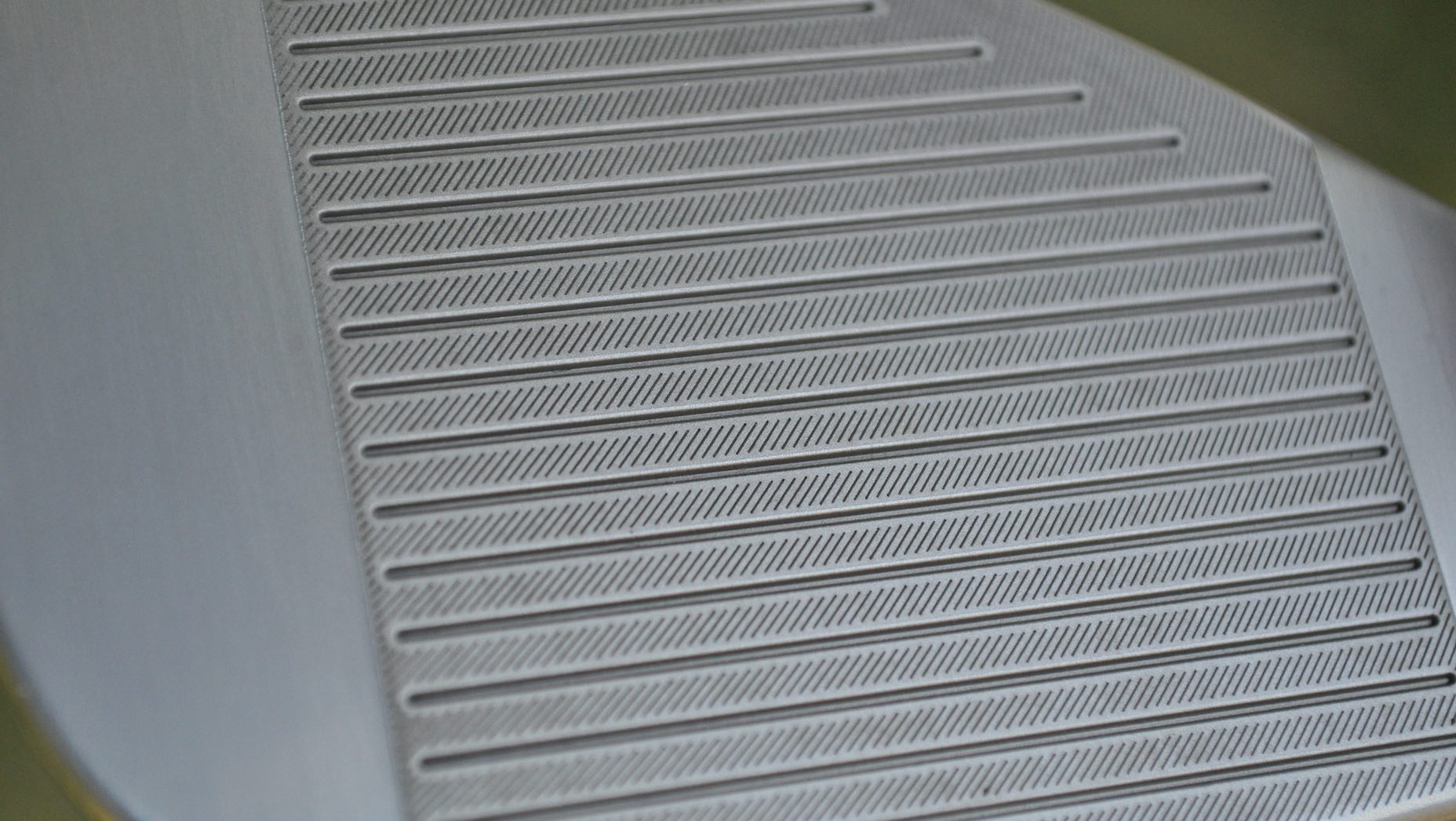
Jonathan Wall/GOLF
An aggressive groove is always going to impart additional spin on the golf ball. However, things can get murky when the same groove is required to maintain a similar spin rate from wet conditions. Moisture has a tendency to drop spin, especially when it has nowhere to go. In other words, it can add unpredictability to essential shots.
To add consistent spin to MG4, TaylorMade went through 12 iterations before landing on its Spin Tread technology. A raw face and strategically designed grooves are paired with a new laser etching treatment that can be felt by simply running your finger along the face.
“It’s all about spin maintenance, especially from dry to wet conditions,” said Cesario. “Spin tread is an aggressive laser treatment that we cut into the face at a 45-degree angle. Those laser cuts are deep and aggressive.”
Not only is the laser etching designed to increase zip, but it also creates space for water to exit, similar to the tread on a tire. Channeling moisture away allows the ball to hang on the face longer for consistent spins from unpredictable conditions.
Durability
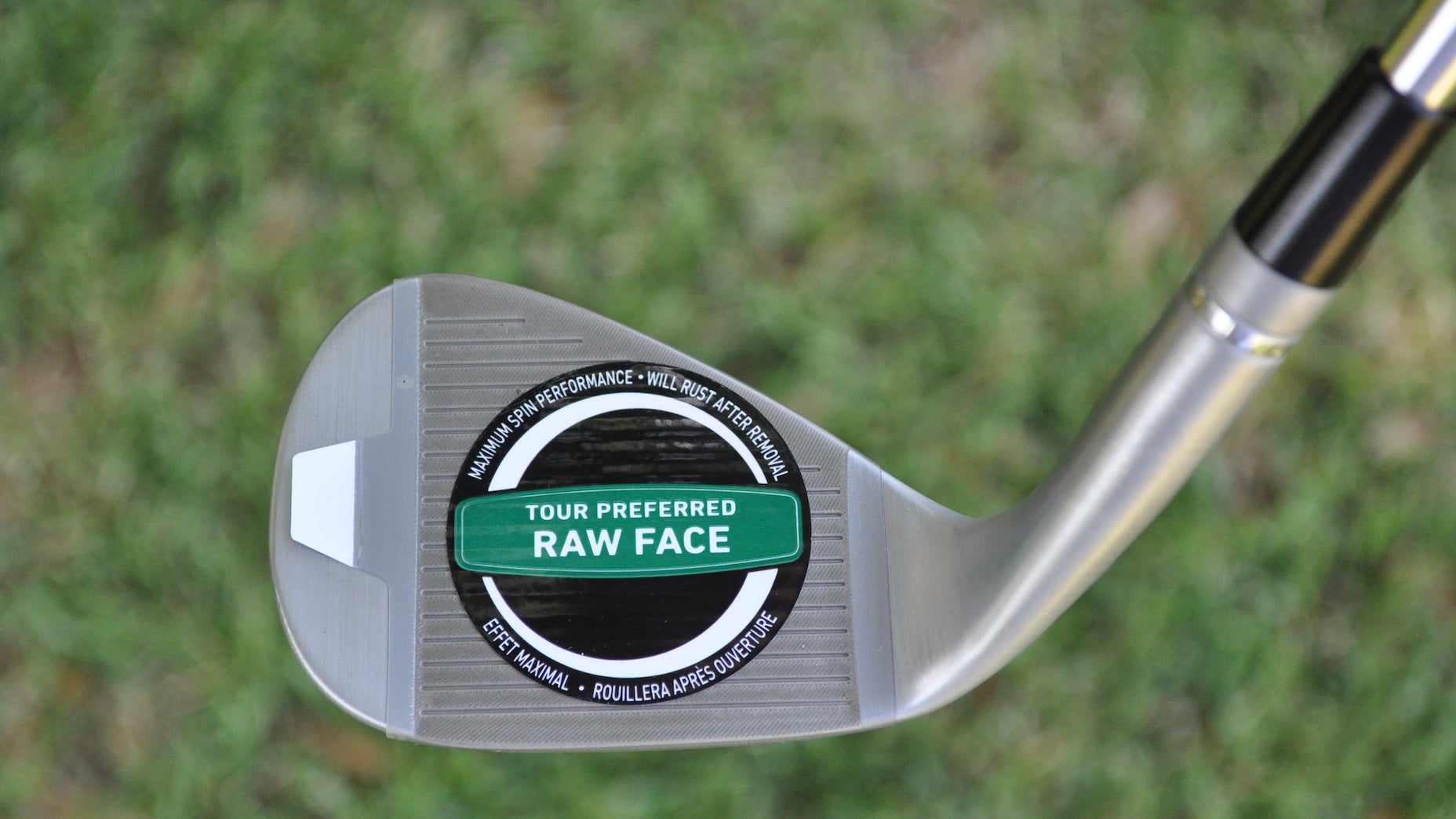
Jonathan Wall/GOLF
Raw grooves generally produce an otherworldly feel. The downside, however, with unplated grooves is they generally wear down quicker, leading to a noticeable reduction in spin around the green.
To find a solution for spin degradation, TaylorMade took a look at golfers who logged 40 rounds on MyTaylorMade+ and noticed 200 fairway shots and 80 bunker shots were common with a wedge in hand.
To determine how much spin changed after 40 rounds, TaylorMade tested MG3 and MG4, post 280 shots, to determine if a delta existed. What they found was the laser treatment on MG4 added a level of durability and spin retention that MG3 simply couldn’t match.
In wet conditions, MG3 was around 7,500 RPMs while MG4 saw an additional 1,000 RPMs on the same shot. The laser treatment was initially designed to improve wet spin rates, but it also improves groove durability as well. It’s an added bonus for a raw wedge.
Profile
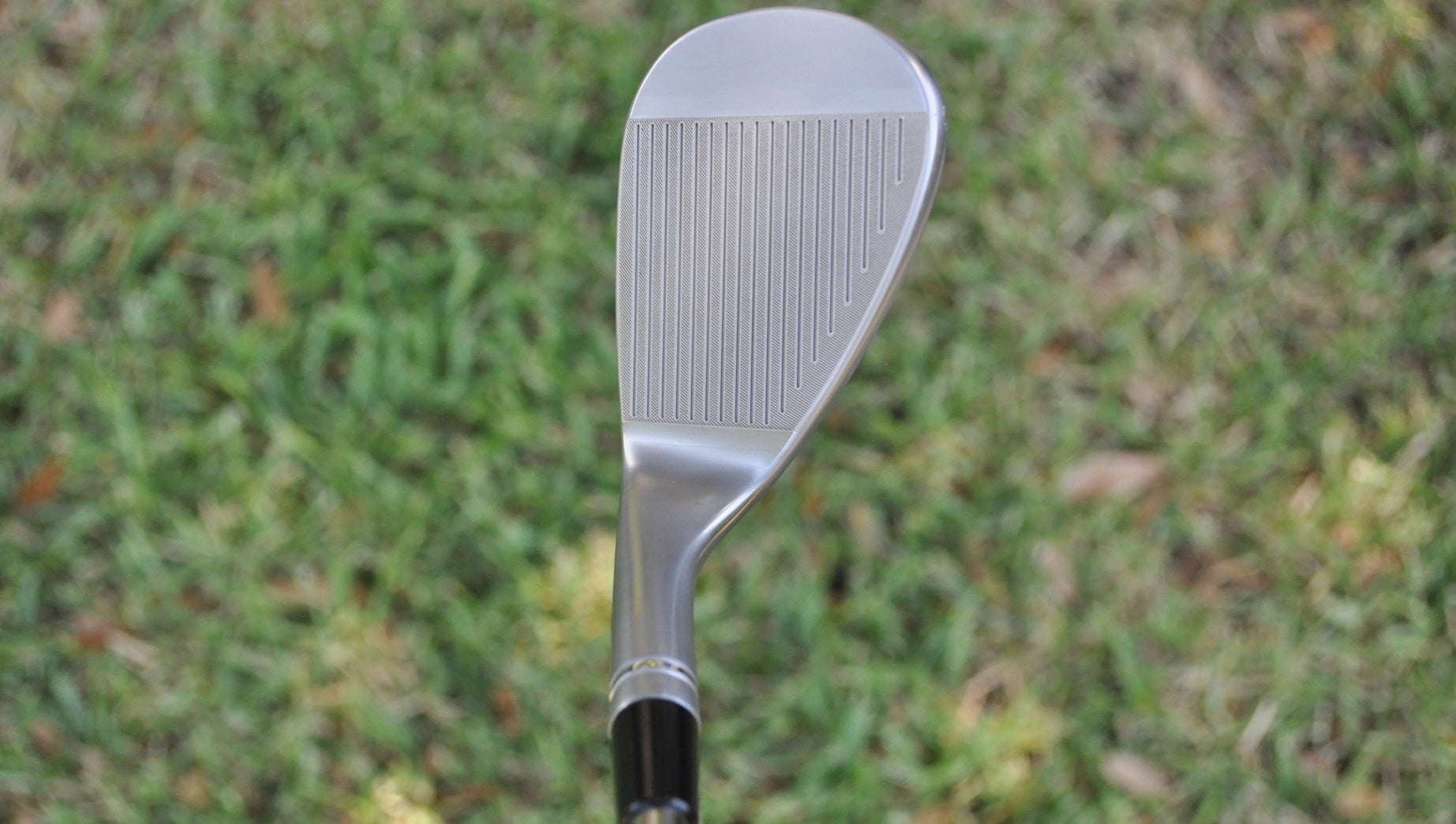
Jonathan Wall/GOLF
Subtle improvements were made to the profiling of the 56- and 60-degree wedges, but the lower lofts continue to look almost identical to MG3.
Through Tour feedback, Cesario increased the leading edge radius down in the “belly” for face manipulation purposes. A straighter leading edge was also added to allow it to “lay better into the ground.”
While altering one angle can have performance benefits, Cesario noted it can change how the wedge looks at address.
“All these angles and radiuses work in tandem,” he said. “The minute you move one geometry, the other is affected by it. Players pick up on that. For instance, when we increase the belly to make it look like a fuller wedge, that par area up in the hosel becomes a critical and tricky area on a wedge.”
To make the entire design flow, the par area was adjusted up to make the transition into the hosel cleaner and more consistent. A rounder top edge can also be found on the higher lofts.
Plenty of options

Getty Images
The Milled Grind lineup has never been short on grind options. With MG4, it’s broken down into three options: LB (low bounce), SB (standard bounce) and HB (high bounce). Depending on your delivery and typical course conditions, an option can be selected from the “grind menu.”
Only this year’s menu is a little more nuanced. To cater to different swing dynamics, TaylorMade added new grinds to the menu, bringing the total to six for every possible need.
Below is a breakdown from TaylorMade on the specific grinds offered, as well as the popular TW Grind:
Low Bounce (LB): Low leading edge for added versatility and shot-making in firm conditions.
Low Bounce V (LBV): Designed for skilled players with a shallow attack angle, offering exceptional spin and the ability to manipulate face angles effectively.
Standard Bounce (SB): All-around performance that prevents excessive digging and allows the clubhead to glide through the turf smoothly.
Standard Bounce C (SBC): Provides increased versatility for players who prefer to manipulate face angles, without compromising bounce performance.
High Bounce (HB): TaylorMade’s standard high bounce design is playable for skilled golfers and defies the convention that high bounce wedges are only for high handicappers. In fact, Rory McIlroy uses a HB 60-degree Milled Grind 4 depending on course conditions.
High Bounce Wide (HBW): With an increased sole width, this high bounce option offers improved playability and excels in sand play.
Tiger Woods Grind (TW): Offered in 56- and 60-degree lofts, each sole on the MG4 TW was inspired by Tiger’s grind. The 56-degree wedge is a dual sole with heavy heel relief, while the 60-degree has an extremely high bounce on the leading edge with a shaved heel. Designed to be supremely versatile, these unique grinds allow Tiger to take on any shot, on any course, anywhere in the world.
Pricing
TaylorMade’s MG4 wedge will be available September 8 and retails for $179.99. Standard lofts include 46-60 degrees (the 46- and 48-degree lofts are only offered in Standard Bounce options). Each wedge comes equipped with True Temper’s Dynamic Gold Tour Issue 115 shaft and Lamkin’s Crossline 360 Black/Green/Silver Round grip.
Want to overhaul your bag for 2023? Find a fitting location near you at True Spec Golf.








